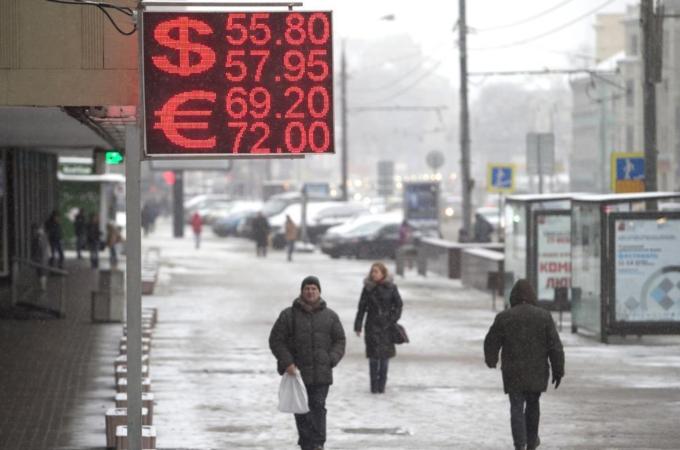
OVERVIEW
MANAGEMENT
PERFORMANCE
POSSIBILITIES
CAPITALS
ACTIVITIES
ACTORS
BURGESS
Geopolitics |
|
Burgess COMMENTARY |
|
OPINION Moscow's collapsing power dreams ... Plummeting oil prices and a sinking rouble reveal the real limits of Moscow's inflated ambitions.
The last few days in global finance have been marked by dramatic developments in the energy sector. Oil prices have collapsed by about 40 percent since this year's peak in June. The plummeting oil prices have had negative consequences on economies across the world, from Moscow to Caracas to Tehran. The situation is particularly bad in Russia where the shock of shrinking energy revenue is doubled by a monetary crisis. Just in the past week the Russian rouble lost 17 percent of its value in two days; its exchange rate to the US dollar has collapsed by over 50 percent since the beginning of the year. Balancing an oil-dependent budget The energy crisis has its origin in a global surplus of crude oil supply resulting from a rapid expansion of oil production in the US. In order to dissuade additional investments in production of shale oil and tar sands in North America, and wedge a war on market shares, Saudi Arabia has voluntarily gone far above its previous OPEC production commitment. Some have seen this move as a plot by the Americans to punish countries like Iran and Russia. Indeed, the sharp decrease in oil prices to $60 per barrel is far below the breakeven point for countries such as Venezuela and Iran who need $140 per barrel to balance their budget and continue with their policies of social spending and subsidised imports of vital goods. The Russian economy is also very vulnerable to such price fluctuations as the energy sector accounts for about half of the state's revenues and a quarter of its gross domestic product. Putin's gamble to assume that the West would not confront him over Ukraine because of energy security concerns was a miscalculation of the forces at play. The shrinking oil revenues coupled with the economic sanction packages have destroyed investors' confidence in the Russian economy, resulting in record levels of capital flight and a plunging rouble. The Russian central bank desperately tried to offset the monetary collapse by a historic interest rate rise to 17 percent overnight, drastically hampering future investment in the country. On Wednesday, Moscow also spent a colossal amount of foreign reserves to save its currency exchange rate. Even if these moves manage to halt the further collapse of the Russian currency, the rouble by now has lost quite a lot of its value, severely hurting Russians' purchasing power and triggering inflation. According to the Russian ministry of economic development, food prices in Russia will increase by 12 percent by the end of this year, and conservative estimates for the first months of 2015 already set inflation at 10 percent. While Moscow argues that a weak rouble will increase the competitiveness of its exports, the downside will be the likely incapacity of Russian companies and banks to reimburse the $120bn in debts to international creditors scheduled for 2015. The lavish infrastructures and endemic corruption during the Sochi games have reduced their solvency, and the infrastructures needed for the 2018 World Cup will be hard to finance. Unafforable programmes Isolated by sanctions and weakened by a collapsing currency and large capital flight, Russia cannot afford a sharp fall in oil revenue.The country loses $2bn for every dollar decrease in the price of oil. The once comfortable reserve of $450bn enjoyed by the Kremlin seems now far from sufficient to allow Putin to satisfy his ambitions. After abandoning the building of the South Stream energy corridor towards Europe, Russian finance minister recently announced the country could not afford its scheduled $500bn rearmament programme. Putin defends foreign policy in state address While Putin enjoyed very high popularity ratings of 80 percent since the annexation of Crimea, several recent polls have shown that the Russian population is increasingly concerned by the perspective of recession and faltering purchasing power. Such sentiments are inevitably threatening to the political stability of a regime. After all, it was economic turmoil and not military defeat that ran both Yeltsin and Gorbachev out of power. Perhaps Putin was hoping that playing on nationalistic sentiments, scolding Ukraine and annexing Crimea would take attention away from the slowdown of the economy. Unfortunately, his moves only perpetuated the deterioration of the economic situation in Russia. Even if the Deputy Finance Minister Aleksey Moiseev tries to pretend that the Russian economy is merely 'adjusting to the new realities of international trade', well-informed global investors have already fled and sanctioned a country that has been unable to diversify its economy to mitigate an ineluctable energy price decrease at a time of weak global development. The recent announcement that Moscow was considering developing its own independent space station is just another smoke screen to hypnotise the Russian population. At the current rate of economic misfortunes, the Kremlin might not even have the financial means to design it on paper. Remi Piet Remi Piet is assistant professor of public policy, diplomacy and international political economy at Qatar University. The views expressed in this article are the author's own and do not necessarily reflect Al Jazeera's editorial policy. |
|
Remi Piet
Last updated: 20 Dec 2014 11:06 |
| The text being discussed is available at http://www.aljazeera.com/indepth/opinion/2014/12/moscow-collapsing-power-dream-20141218153456126216.html |
